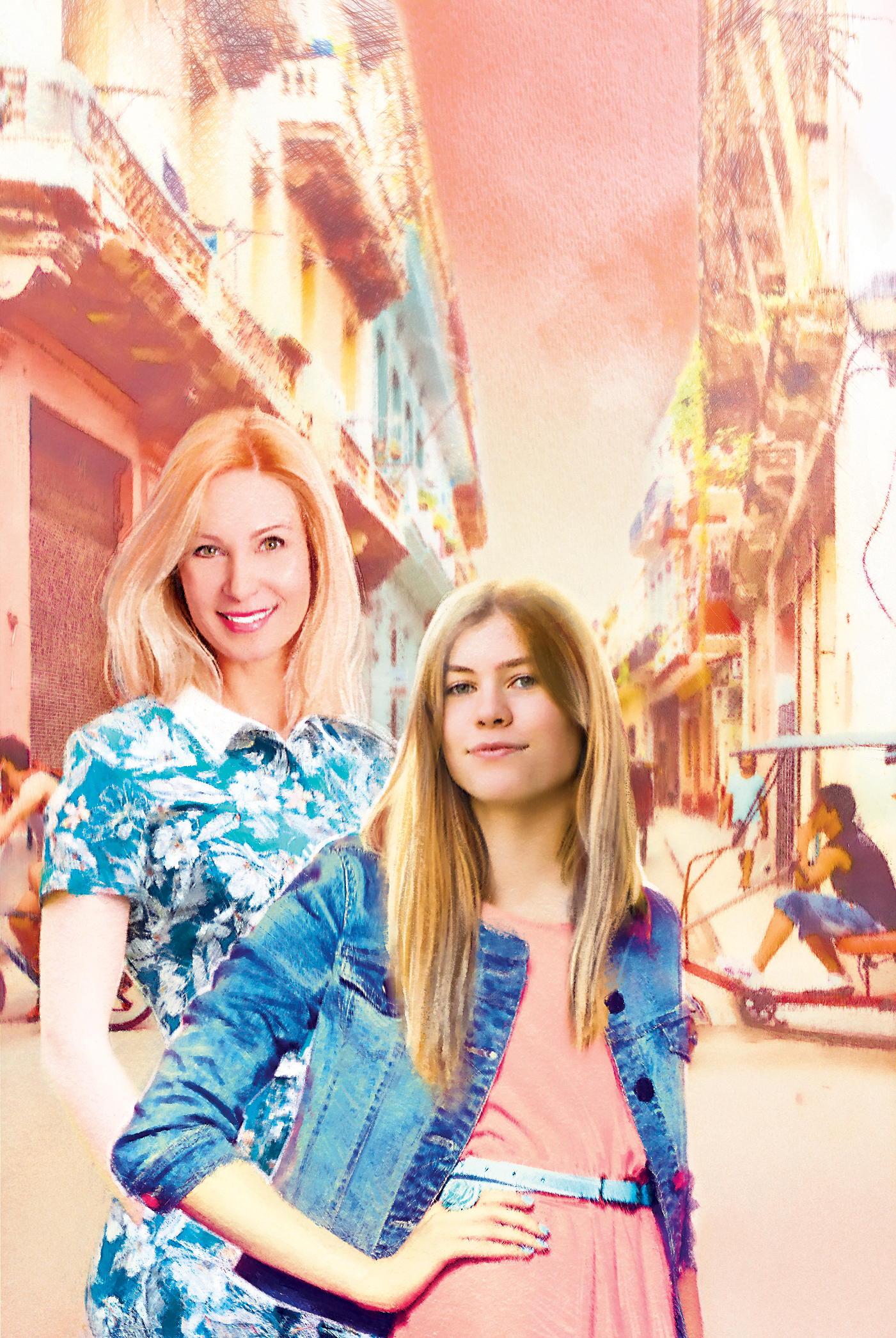Danger In Havana – Episode 08

Danger In Havana by Cara Cooper
« Previous Post- 5. Danger In Havana – Episode 05
- 6. Danger In Havana – Episode 06
- 7. Danger In Havana – Episode 07
- 8. Danger In Havana – Episode 08
- 9. Danger In Havana – Episode 09
- 10. Danger In Havana – Episode 10
- 11. Danger In Havana – Episode 11
WHEN Bryony reached the hotel, she was distraught. She couldn’t get a signal on her mobile so she couldn’t try Anna’s number or ring the police.
She looked for a phone box to call the police and couldn’t find one. Even if she could, she didn’t know how it worked, or what money to put in.
Finally, she saw the reception manager. He was kind and understanding, called the police and persuaded Bryony to sit down with some iced water.
They interviewed her in a side room, away from the hustle and bustle of reception.
The policeman took the whole thing in with a very South American air although he spoke perfect English.
The way he curled his lip at her seemed to indicate he thought she was just another highly-strung English tourist panicking over nothing.
“Cuba, madam, is the safest country in the Caribbean. Now, if you had gone to one of the other islands you might have had cause to worry. But here, we are carefully regulated, we value our tourist trade.”
He picked at his fingernail, looking supremely disinterested in the whole episode, as if he’d been here many times before.
“Your daughter is young, she wants to go off with other young people. Maybe she met someone interesting, perhaps a young man and has escaped on her own for a bit. She will be back.”
“You’re wrong.”
You don’t know our history, Bryony thought inwardly. We’re not like any other mother and daughter. We protect each other, we have to. We know what it’s like to lose someone you love.
She tried to stay calm, to moderate her voice.
“Anna would never go off on her own without telling me. She knows how worried I get.”
“Perhaps it is because you get so worried that she might want some of her own space.”
He looked at his watch, clearly anxious to get away.
“We will keep looking for her and will contact the hotel as soon as we have any
News.”
* * * *
That night was a restless sleep-deprived one for Bryony. Every hour she woke and checked her phone for messages.
She had informed the British Embassy in Havana, but although they had liaised with police, the clear message was that Bryony would simply have to wait for developments.
She forced herself to go down for breakfast but despite going through the motions and collecting a plate of food from the buffet, she couldn’t get down more than a glass of orange juice.
“Good morning.”
Bryony barely heard the deep-barrelled voice when it spoke, so lost was she in her own despair.
She looked up to see, standing in front of her, an Englishman who looked vaguely familiar. She mentally shuffled through the many faces in her head she had seen since arriving in Cuba.
Finally it came to her. He’d been in the lobby the first day they arrived, when she’d mislaid her passport.
“Good morning,” Bryony said. “I’m sorry, I forgot to thank you the other day when you helped us.”
“Are you all right, you look very pale?”
She was so grateful when, without asking, the stranger sat down opposite her, his broad frame filling the empty space at her table.
“Isn’t your daughter joining you for breakfast today? Is she unwell?”
It was a total relief to have someone in front of her to talk to, someone whose eyes betrayed concern for her. Someone who spoke English.
Without even thinking, it all came pouring out. Bryony couldn’t stop herself. She was so wound up with sleeplessness and worry and although it wasn’t fair to unburden herself on this man she didn’t have anyone else.
She’d phoned people at home last night, told all her friends and family. They’d fired suggestions at her and given their sympathies for her predicament, but what could they do from so far away?
Besides, they had their own busy lives, and Bryony had discovered, after losing Warren, that bereavement was a curious thing.
When you first lost a husband people were full of concern, they made real efforts to offer a shoulder to cry on. She even had wonderful neighbours who had cooked meals and brought them round.
But gradually, of course, people’s own lives crowd in and take up their space. Because they see you around with a smile on your face and a purposeful gait they assume you’re coping well.
What they don’t see is the crumbling mass inside of you, the grief which permeates each day, sneaking up on you when you least expect it.
The man leaned forward, his chin balanced on his hands, listening to her intently.
How different from the Cuban policeman who had fidgeted and looked out of the window, who had made encouraging noises but who barely seemed to be listening.
“And you say that it is very out of character for your daughter to go off on her own?”
“Absolutely. You see . . .”
Bryony looked down. She’d come here to escape Warren’s untimely death, not to have to explain it all again, yet she did, everything.
She recounted Warren’s journey to hospital, her shock at his passing. And it felt good to get it off her chest.
“So, you see, Anna and I have become a tight knit unit. I look after her and she looks after me. She’s always concerned for my welfare and she’d know that flitting off without an explanation would drive me demented.
“Something’s happened to her, I just know it.”
Bryony wrung her hands, feeling entirely helpless.
It was only when the man, who had introduced himself as Sergeant Mark Greenstreet, explained that he was a policeman that Bryony felt a glimmer of hope in her grim situation.

















